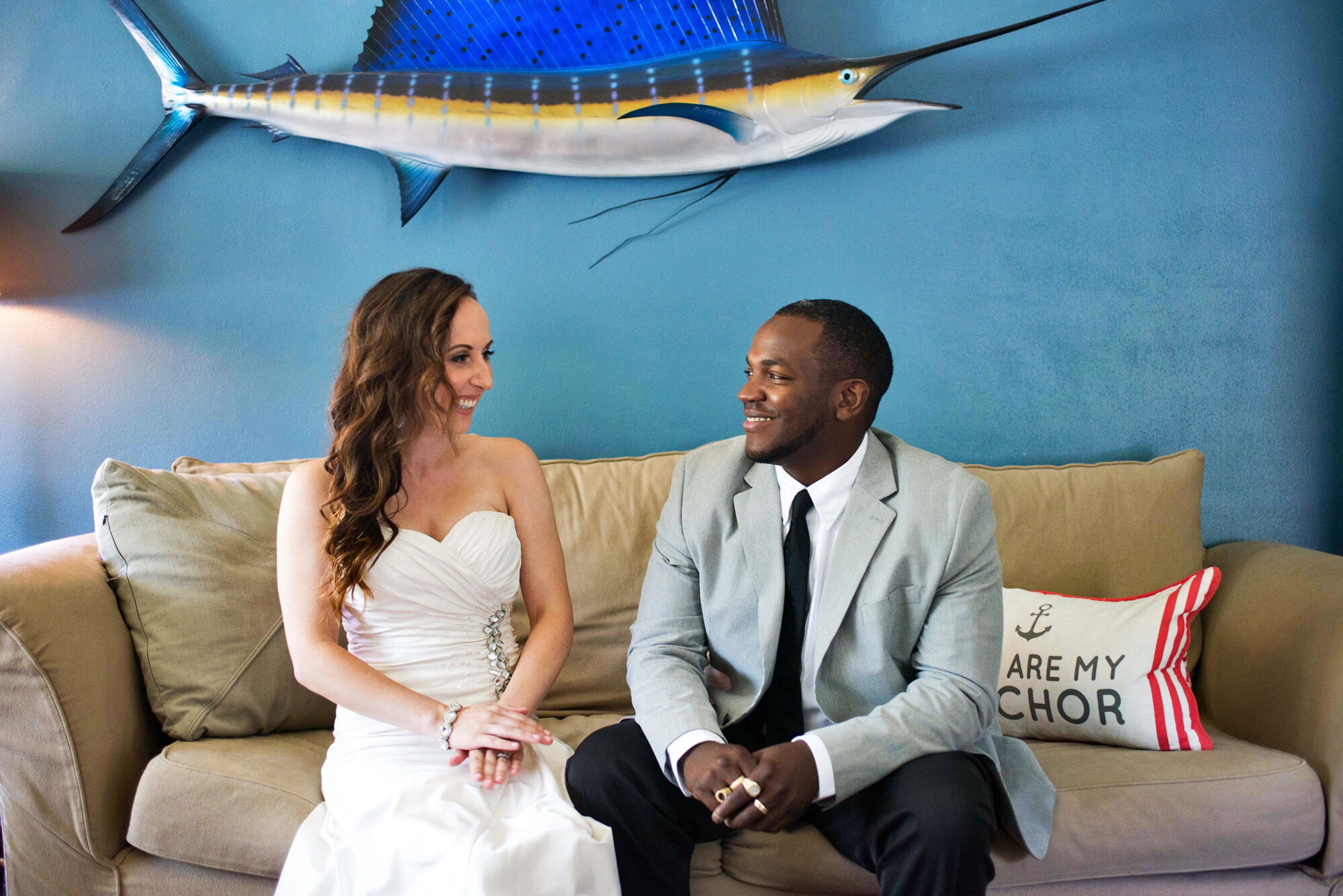
Two educators from Prince George’s County are back in Maryland after a frightening and challenging ordeal that began last month, half a world away in China.
Kevin Scriber II of Bladensburg, Maryland, is a candidate for a Ph.D. in biology from Howard University and had been teaching in China for several months when he suddenly became critically ill.
One day, in the second week of January, colleagues found him partially paralyzed in his apartment. It happened just one week after he submitted his Ph.D. paperwork.
Scriber was diagnosed with two overlapping autoimmune disorders and eventually became fully paralyzed and in need of breathing and feeding tubes.
His wife Naliyah Kaya, a sociology professor at Montgomery College, managed to quickly get a passport and visa and reach her husband’s side the following week.
Scriber’s illness is unrelated to the coronavirus, but it manifested at the same time the outbreak in China was growing and coronavirus concerns forced Kaya to leave several Chinese hotels.
Although he got great care in China, Scriber’s doctors there said it was crucial to get him a medical flight back to the U.S. However his insurance company — Kaiser Permanente — initially refused to pay for one.
Kaya started an online petition drive to get the decision reversed. Eventually, it was.
Coronavirus-related travel crackdowns meant the couple had to jump through extra hoops before leaving China last week.
“The medical flight requested that we both (get) tested, and in order to test as negative you actually have to test negative two times within 48 hours. So we had to complete the testing in order to leave the country, and then to my knowledge the hospital retested him,” said Kaya.
And there was a last minute complication: “The day we were leaving, the flight got delayed multiple times due to weather,” Kaya said.
Finally, Scriber was placed aboard a small jet that was effectively an ambulance with wings.
“We had an ER doctor, a respiratory therapist and a registered nurse on the flight [along with] myself and him,” said Kaya. “I couldn’t have asked for anyone better to be on that flight or to take care of him.”
The flight lasted 18-20 hours, with numerous stops.
“We had to go to Japan, Alaska, Canada and then to Baltimore,” Kaya said.
While on the plane, Scriber was heavily sedated and placed on a ventilator. Upon landing at BWI Marshall Airport, he was immediately taken to a hospital.
“He has been talking and having a speech therapist come up and work with him. He’s still a little disoriented, but he does remember most things and can talk. It wears him out, but his voice is coming back,” said Kaya.
Scriber’s recovery is expected to take six to 12 months.
Kaya said her husband wasn’t feeling well for about a week before things got really bad.
“Now that he’s a little bit more awake, he is recalling feeling kind of tingling feet and hands, which is pretty much the standard of what happens when the autoimmune disorder begins. So he is remembering that that started happening to him as he was becoming paralyzed,” she said.
Next, Kaya is working to get Scriber into an inpatient rehab. Once that happens she hopes to finally be able to exhale.
“It’s still pretty overwhelming. I think once he’s in a rehabilitation facility and maybe we have a consistent set of doctors a team and more of a schedule, it might be a little bit easier. But right now, everybody wants to help, but it’s just kind of a situation where I need a clone of myself to be in multiple places at the same time,” said Kaya.
She’s been busy shuttling between home and the hospital, running errands, and teaching classes online. This week, she plans to return to work in person.
“My students have been incredibly sweet,” Kaya said. “I look forward to meeting all of my new students from this semester.”
Kaya’s advice for other travelers? Don’t assume that your health or travel insurance will cover you if you become seriously ill while far from home.
She has met other people that have gotten stuck abroad and had to do the same thing she and her husband did to get an approval to leave the country.
Her advice: “Look into actual air medical flight policies before you leave.”
Kaya is thankful to Kaiser Permanente and everyone who helped her and her husband.
“It took multiple countries helping us, it took all of our friends, family, strangers, his colleagues,” she said. “I really appreciate everything that everybody has done. It’s just going to be a little bit of a long road here.”







